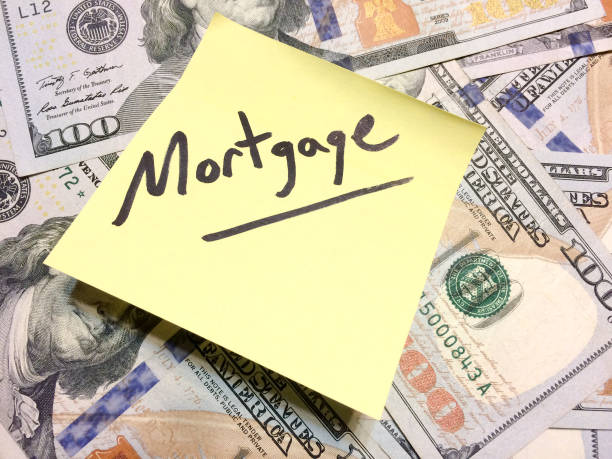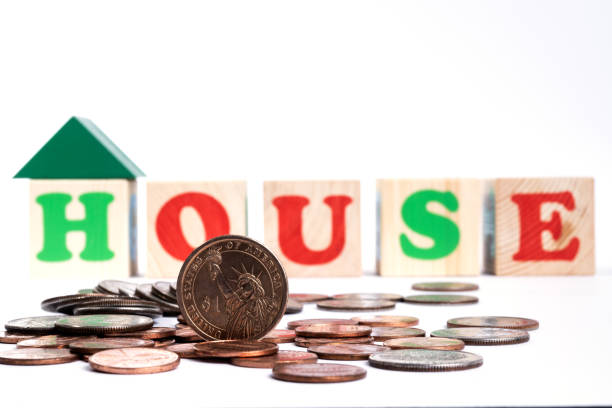The average mortgage rate in New York is a crucial factor to consider when buying a home. Understanding these rates and comparing them can help you make informed decisions. There are different types of mortgages available, including fixed-rate and adjustable-rate options. First-time homebuyer programs offer valuable assistance, and finding the best mortgage lenders is crucial. The mortgage application process involves gathering financial information and submitting your application for underwriting. Additionally, managing your mortgage and exploring refinancing options can save you money. Use resources such as mortgage calculators and government housing programs for additional information.
Overview of Average Mortgage Rates in New York

When considering buying a home in New York, understanding the average mortgage rates is crucial. These rates can fluctuate depending on several factors that impact the housing market. By exploring these factors, you can gain valuable insights into the current mortgage rate landscape and make informed decisions. Additionally, it is essential to become familiar with average mortgage rates and the benefits of comparing them before diving into the home-buying process.
Factors Affecting Mortgage Rates in New York
- Economic conditions: Local and national economic factors, such as inflation rates, employment rates, and GDP growth, can influence mortgage loan rates in New York.
- Interest rates: The Federal Reserve’s monetary policy and changes in the federal funds rate impact mortgage rates. When interest rates are low, mortgage rates tend to be lower.
- Creditworthiness: Your credit score and financial history determine the mortgage rate you qualify for. Lenders consider the level of risk they take when lending to borrowers.
- Housing market conditions: The demand for housing, housing inventory, and overall market competitiveness affect mortgage rates. In Seller’s market with high demand and limited supply, mortgage rates may be higher.
Importance of Understanding Average Mortgage Rates
Having a clear understanding of average mortgage rates in New York is crucial for several reasons. Firstly, it helps you estimate your potential monthly mortgage payments and plan your budget accordingly. By knowing the prevailing rates, you can evaluate if it is the right time to enter the housing market or wait for more favorable conditions.
Additionally, understanding average mortgage rates allows you to compare different loan options effectively. By analyzing the rates offered, you can identify the most competitive option that aligns with your financial goals.
Benefits of Comparing Mortgage Rates
Comparing mortgage rates in New York offers several benefits:
- Potential cost savings: By comparing rates, you can secure a lower interest rate, resulting in significant savings over the life of your mortgage.
- Access to better loan terms: Lenders may offer different loan terms and rates. Comparing multiple options can help you find favorable rates and terms that suit your needs.
- Increased negotiating power: When armed with knowledge about current mortgage rates, you have an advantage when negotiating with lenders. You can leverage this understanding to secure more favorable terms.
- Confidence in your decision: By comparing rates, you can make a well-informed decision, confident that you have thoroughly explored available options and selected the best mortgage rate.
Now that you have an overview of average mortgage rates in New York, understanding the factors influencing these rates and the importance of comparing them, you are better equipped to navigate the homebuying process and find a mortgage that suits your needs.
Types of Mortgages in New York

Fixed-Rate Mortgages
Fixed-rate mortgages in New York offer stability and predictability for homeowners. With a fixed interest rate, borrowers know exactly how much their monthly mortgage payments will be throughout the loan term. This option is popular among those who prefer a consistent amount and want to avoid potential rate increases.
Adjustable-Rate Mortgages
Adjustable-rate mortgages (ARMs) provide borrowers in New York with flexibility. The interest rate of an ARM initially starts lower than the prevailing market rates and it is adjusted periodically based on specific factors. ARMs are for those planning to sell or refinance their homes before the rate adjustments occur.
Jumbo and Conforming Mortgages
In New York, jumbo mortgages are designed for loans exceeding the conforming loan limits set by loan agencies. These mortgages typically have higher interest rates and require larger down payments due to their higher loan amounts. Conforming mortgages, conversely, adhere to the loan limit guidelines and offer more favorable interest rates.
Government-Backed Mortgages
In New York, several government-backed mortgage programs are available to assist homebuyers. These include Federal Housing Administration (FHA) loans, which offer lower down payment requirements and more flexible eligibility criteria. Additionally, there are Department of Veterans Affairs (VA) loans for eligible veterans or active-duty service members and United States Department of Agriculture (USDA) loans for those buying homes in rural areas.
First-Time Homebuyer Programs in New York

First-time homebuyers in New York can access multiple programs to help them navigate the home-buying process and make homeownership more affordable. These programs offer various types of assistance, including down payment assistance, closing cost assistance, and education and counseling services.
Eligibility Requirements
New York’s first-time homebuyer programs require first-time buyers to meet eligibility requirements. These criteria typically include income limits, credit score requirements, property type, and purchase price. Eligibility requirements may vary depending on the specific program.
Down Payment Assistance Programs
Down payment assistance programs provide financial assistance to help first-time homebuyers cover the upfront costs of home-buying. These programs may offer grants, loans, or a combination of both to be used toward the down payment. Eligibility and assistance amounts vary for each program.
Closing Cost Assistance Programs
Closing cost assistance programs aim to help first-time homebuyers with home-buying expenses, such as appraisal, title insurance, and attorney fees. These programs may provide grants or loans to help offset these costs, making homeownership more affordable.
Homebuyer Education and Counseling
Homebuyer education and counseling programs offer guidance and resources to first-time homebuyers, helping them understand the home buying process, financial responsibilities, and how to sustain homeownership. These programs typically provide workshops, seminars, online courses, and one-on-one counseling sessions.
Benefits of First-Time Homebuyer Programs
- Reduced financial burden by providing funds for down payment and closing costs
- Access to education and counseling to increase homebuying knowledge
- Increase in affordability for first-time homebuyers
- Potential for lower interest rates or favorable loan terms
- Opportunity to qualify for special loan programs
Applying for First-Time Homebuyer Programs
Individuals interested in first-time homebuyer programs in New York should research and identify the programs that align with their needs. They want to gather necessary documentation, such as income verification and credit history, and apply to the program administrator. Working with a knowledgeable loan officer or housing counselor can help navigate the application process efficiently.
Finding the Best Mortgage Lenders in New York

Regarding securing a mortgage in New York, finding the right lender is crucial for a smooth and successful homebuying process. Here are some key factors to consider and steps to take when searching for the best mortgage lender:
Researching and Comparing Mortgage Lenders
- Start by researching and gathering a list of potential mortgage lenders in New York.
- Look for reputable lenders with experience in the local market and positive customer reviews.
- Compare the mortgage programs they offer, including interest rates, loan terms, and closing costs.
- Consider online lenders as well, as they often provide competitive rates and convenient digital processes.
Factors to Consider When Choosing a Lender
- Evaluate the lender’s reputation and track record in the industry.
- Check if they offer personalized customer service and guidance throughout the mortgage application process.
- Consider their responsiveness, as timely communication is crucial in a fast-paced real estate market.
- Review the lender’s eligibility requirements and determine if you meet their criteria.
- Take into account any specific loan programs or assistance they offer for first-time homebuyers.
Tips for Getting the Best Mortgage Rate
- Take steps to improve your credit score before applying for a mortgage.
- Shop around and compare mortgage rates from different lenders to ensure you’re getting the best deal.
- Consider paying points to lower your interest rate, but weigh the costs and benefits.
- Keep an eye on market trends and lock in your mortgage rate at the right time.
- Be prepared to provide documentation and financial information to support your mortgage application.
Working with a Mortgage Broker
If navigating the mortgage process seems overwhelming, working with a mortgage broker can be a smart choice. A mortgage broker acts as a middleman between borrowers and lenders, helping you find the best mortgage options based on your financial situation and goals. They have access to multiple lenders and can negotiate on your behalf for better rates and terms.
However, it’s important to carefully vet the mortgage broker and understand their fees and compensation structure before committing to their services.
By putting effort into researching and comparing mortgage lenders, considering crucial factors, and utilizing the expertise of a mortgage broker if needed, you can ensure you’re partnering with the best mortgage lender for your specific needs in New York.
The Mortgage Application Process

Applying for a mortgage can seem like a complex process, but understanding the steps involved can help make it more manageable. Here is a breakdown of the key stages in the mortgage application process:
Gathering Your Financial Information
Before applying for a mortgage, it’s important to gather all the necessary financial documents. This includes recent pay stubs, tax returns, bank statements, and any other relevant financial records. Lenders will use this information to assess your financial stability and determine your loan repayment ability.
Prequalification vs. Preapproval
The first two steps to determine how much you can borrow are prequalification and preapproval. Prequalification is a preliminary assessment of your financial situation, giving you an estimate of the loan amount you may qualify for. On the other hand, preapproval involves a more thorough evaluation of your financial information and credit history. It provides a conditional commitment from the lender stating the loan amount you are approved for.
Submitting Your Mortgage Application
Once you’ve gathered your financial information and decided on a lender, you can proceed with the mortgage application. The application will require detailed information about your income, employment history, assets, debts, and the property you intend to purchase. Be sure to provide accurate and complete information to keep up with the approval process.
Mortgage Underwriting and Approval
After submitting your application, the lender will review your financial documents and assess your creditworthiness. This process is known as mortgage underwriting. The lender will evaluate your credit score, debt-to-income ratio, and employment stability. They will also conduct a property appraisal to ensure its value aligns with the loan amount. Once the underwriting process is complete and your application is approved, you will receive a mortgage commitment letter outlining the terms and conditions of the loan.
Having a good understanding of the mortgage application process can help you navigate through each step confidently. By gathering your financial information, determining prequalification or preapproval, submitting a complete application, and allowing for the underwriting and approval process, you can increase your chances of successfully obtaining a mortgage for your new home.
Understanding Mortgage Insurance in New York

Regarding obtaining a mortgage in New York, it’s essential to have a clear understanding of mortgage insurance and how it can impact your financial obligations. This section will provide insights into the various aspects of mortgage insurance in New York, including private mortgage insurance (PMI), mortgage insurance premiums (MIP), and its effects on your monthly payments.
Private Mortgage Insurance (PMI)
Private Mortgage Insurance, commonly known as PMI, is a type of insurance that protects the lender in case the borrower defaults on their mortgage payments. If you make a down payment of less than 20% of the home’s purchase price, lenders typically require you to get PMI.
PMI payments are added to your monthly mortgage payments, and the insurance cost depends on various factors like the loan amount, credit score, and loan-to-value (LTV) ratio. It’s important to note that once you reach at least 20% equity in your home, you can request to have PMI removed.
Mortgage Insurance Premiums (MIP)
In the case of government-backed mortgages, such as FHA loans, mortgage insurance premiums (MIP) are required. MIP serves a similar purpose as PMI by protecting the lender in case of default. However, MIP provides additional benefits for borrowers, such as lower down payment requirements.
The MIP payments are divided into an upfront premium paid at closing and an annual premium added to your monthly mortgage payments. The specific amount of MIP depends on factors such as the loan amount, LTV ratio, and loan term.
How Mortgage Insurance Affects Your Monthly Payments
Mortgage insurance increases your monthly mortgage payments. It’s crucial to consider these additional costs when budgeting for your home purchase. Contemplate that as you pay down your mortgage and gain equity in your home, you may be eligible to cancel or remove mortgage insurance, reducing your monthly payments.
Understanding the implications of mortgage insurance in New York is essential for making informed financial decisions. Verify the specific details of your mortgage insurance with your lender to fully comprehend its impact on your overall mortgage terms and monthly budget.
Refinancing Your Mortgage in New York

Refinancing your mortgage in New York can be a smart financial move, offering various benefits and cost-saving opportunities. Understanding the reasons to refinance, the optimal timing, available refinance options, and associated costs and considerations is essential for homeowners in New York.
Reasons to Refinance Your Mortgage
- Lower Interest Rates: Refinancing allows you to take advantage of lower interest rates, reducing your monthly mortgage payment and potentially saving thousands of dollars over the life of the loan.
- Shorter Loan Term: By refinancing to a shorter loan term, such as switching from a 30-year to a 15-year mortgage, you can pay off your mortgage and build home equity faster.
- Cash-Out Refinance: Homeowners can access the equity they have built in their home by refinancing and receiving a lump sum of cash. This can be used for various purposes, such as home improvements, debt consolidation, or covering unexpected expenses.
- Switching Loan Types: A refinance can provide more stability and flexibility by switching from an ARM to an FRM based on your financial goals.
When to Refinance Your Mortgage
- Lower Interest Rates: Keep an eye on the market trends and consider refinancing when mortgage rates are significantly lower than your current rate, providing substantial savings.
- Improved Credit Score: If your credit score has improved since you initially obtained your mortgage, refinancing can help you qualify for better interest rates and loan terms.
- Change in Financial Situation: Refinancing may be a viable option if your financial circumstances have changed, such as a higher income, debt reduction, or increased home equity.
- Long-Term Savings: Calculate the break-even point to determine if the long-term savings from refinancing will outweigh the upfront costs associated with the process.
Refinance Options and Rates
When refinancing your mortgage in New York, you have several options to choose from, including:
- Rate-and-Term Refinance: This option allows you to change your interest rate or loan term without accessing additional cash from your home’s equity.
- Cash-Out Refinance: If you need additional funds, a cash-out refinance provides a lump sum of cash by borrowing against your home’s equity.
- Streamline Refinance: For borrowers with government-backed mortgages, such as FHA or VA loans, streamline refinancing offers a simplified and expedited process with fewer documentation requirements.
Mortgage rates for refinancing in New York can vary depending on your creditworthiness, the loan term, and the type of refinance option you choose. Compare rates from different lenders to secure the best terms and rates.
Costs and Considerations of Refinancing
While refinancing your mortgage can lead to significant savings, it’s essential to consider the costs involved:
- Closing Costs: Similar to obtaining a new mortgage, refinancing typically incurs closing costs, including appraisal fees, origination fees, title insurance, and other associated fees.
- Prepayment Penalties: Check whether your existing mortgage has any prepayment penalties, which could impact the cost-effectiveness of refinancing.
- Breakeven Analysis: Determine the breakeven point by comparing the upfront refinancing costs with the monthly savings. This will help you decide if refinancing is financially beneficial in the long run.
- Future Plans: Consider your plans. If you plan to sell your home shortly, the cost of refinancing may outweigh the potential savings.
Before proceeding with refinancing, it is recommended that you evaluate your financial situation, consult with a reliable mortgage lender, and make an informed decision based on your specific needs and goals.
Tips for Managing Your Mortgage in New York

Managing your mortgage is essential to ensure financial stability and make the most out of your investment. Here are some valuable tips to help you navigate the process:
Making Your Monthly Mortgage Payments
Timely and consistent mortgage payments are crucial to maintaining a good credit score and avoiding late fees or penalties. Set up an automated payment or create reminders to ensure you never miss a payment.
Paying Extra Towards Your Principal
If you have extra funds, consider making additional payments towards your principal. This can help reduce your loan term and save thousands in interest payments.
Options for Paying Off Your Mortgage Early
- Biweekly Payments: Splitting your monthly mortgage payment in half and making payments every two weeks can result in an extra full payment each year, helping you pay off your mortgage faster.
- Lump-Sum Payments: If you receive a bonus, tax refund, or any substantial amount of money, consider using it to make a lump-sum payment towards your mortgage principal.
- Refinancing to a Shorter Term: If your financial situation allows, refinancing your mortgage to a shorter term (e.g., from a 30-year to a 15-year loan) can accelerate your payoff timeline.
Dealing with Financial Hardships or Difficulties
Unexpected challenges can occur, and you should address them quickly to keep up with your mortgage payments. If you’re facing financial difficulties, consider the following options:
- Refinancing: Explore refinancing options to lower your monthly payments or extend the loan term, providing temporary relief during challenging times.
- Loan Modification: Contact your mortgage lender and discuss modifying your loan terms to make payments more manageable.
- Forbearance: If you’re experiencing a temporary financial setback, request a forbearance arrangement with your lender, allowing you to temporarily pause or reduce your mortgage payments.
- Seeking Professional Advice: Consult with a housing counselor or financial advisor who can provide guidance on managing your finances and help you navigate difficult situations.
By implementing these tips, you can take control of your mortgage in New York and work towards a secure financial future.
Additional Resources for Mortgage Information in New York

Regarding mortgage information in New York, having access to reliable resources is essential. Here are some additional resources that can help you navigate the mortgage process:
Mortgage Rate Comparison Tools
- Bankrate: This website offers a comprehensive mortgage rate comparison tool that allows you to compare rates from different lenders in New York. It provides valuable insights into current market trends and helps you make informed decisions.
- Zillow: Zillow allows you to search for homes and provides a mortgage rate comparison tool. You can easily compare rates from various lenders and explore different loan options.
Mortgage Calculators
- Mortgage Payment Calculator: This calculator helps you estimate your monthly mortgage payments by considering loan amount, interest rate, and loan term. It is a valuable tool for understanding the financial commitment of homeownership.
- Refinance Calculator: If you are considering refinancing your mortgage, this calculator helps you determine potential savings by comparing your current mortgage with the new loan terms.
- Closing Cost Calculator: When buying a home, it’s essential to budget for closing costs. This calculator helps you estimate the total closing costs associated with your mortgage.
Government Housing Agencies and Programs
- New York State Homes and Community Renewal (HCR): HCR offers various programs and resources to assist first-time homebuyers in New York. They provide information on down payment assistance, affordable housing, and homebuyer education.
- Federal Housing Administration (FHA): The FHA, a division of the U.S. Department of Housing and Urban Development (HUD), offers government-backed mortgage programs with flexible eligibility requirements and low down payment options.
Homebuyer Education and Counseling Providers
- NeighborWorks America: NeighborWorks provides homebuyer education courses and counseling services to prospective homebuyers. They offer guidance on budgeting, credit management, and understanding the homebuying process.
- Housing Counseling Services: This nonprofit organization offers counseling services to individuals and families in New York seeking assistance with homeownership. They provide personalized guidance and support throughout the homebuying journey.
These additional resources can provide valuable information and assistance as you navigate the mortgage process in New York. These tools and programs can help you make informed decisions and achieve your homeownership goals.







